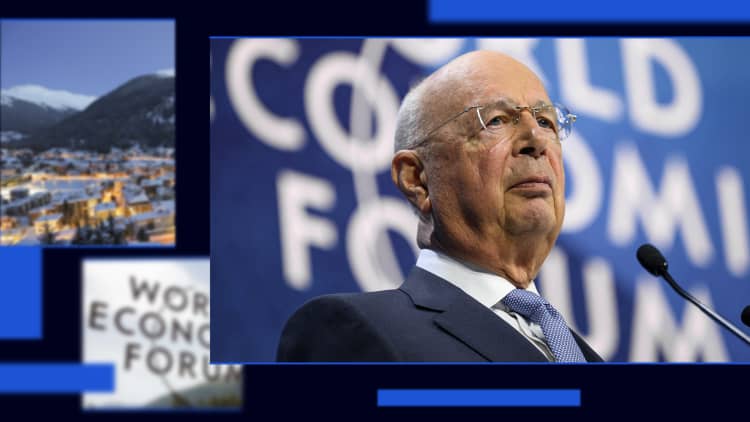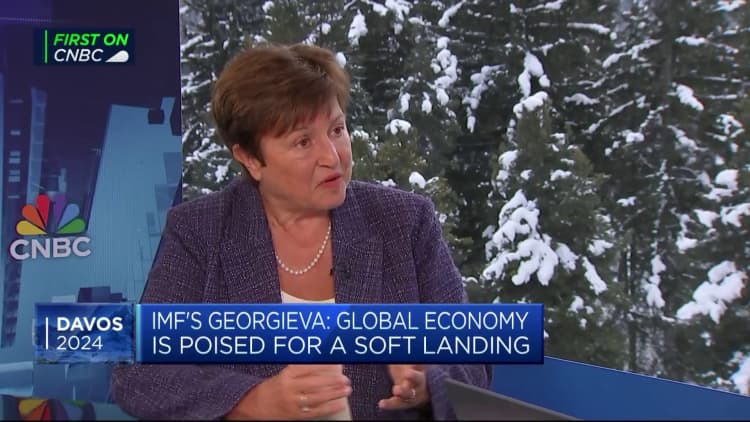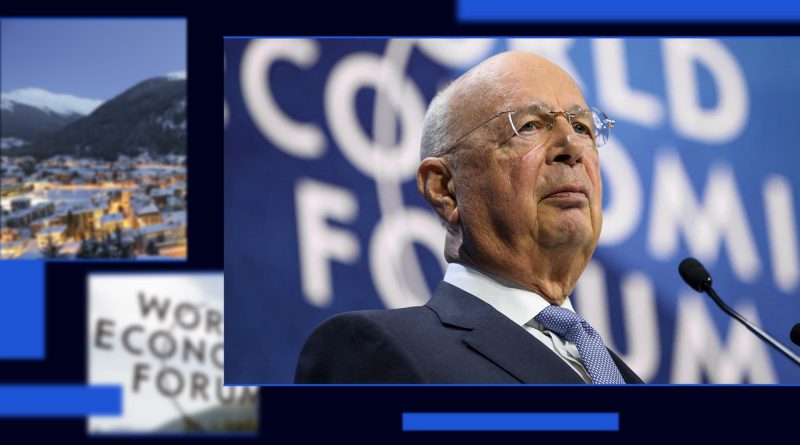China needs reforms to halt ‘significant’ growth declines, IMF chief says
Kristalina Georgieva, managing director of the International Monetary Fund, at a press conference at the IMF Headquarters on April 14, 2023.
Kevin Dietsch | Getty Images News | Getty Images
The head of the International Monetary Fund warned Monday that China needs structural reforms in order to avoid “a fairly significant decline in growth rates.”
Speaking to CNBC at the World Economic Forum in Davos, Switzerland, Kristalina Georgieva said China was facing both short-term and long-term challenges.
In the short-term, she said China’s property sector still needed “fixing,” along with a high level of local government debt. Longer-term, Georgieva noted demographic changes and a “loss of confidence.”
“Ultimately, what China needs are structural reforms to continue to open up the economy, to balance the growth model more towards domestic consumption, meaning create more confidence in people, so [they] don’t save, they spend more,” Georgieva said.

“All of this would help China to deal with what we are predicting in the absence of reforms would be a fairly significant decline in growth rates going under 4%,” she added.
China’s economy saw sluggish growth in 2023, hampered by real estate issues and a slump in exports. Investors expect the economy to have grown by around 5% last year.
Separately, the IMF said in November that it had raised its China growth forecast to 5.4% for 2023 after some policy moves by Beijing. However, the Washington, D.C.-based institution said it still expected growth to slow to 4.6% in 2024, warning of continued real estate struggles.
Georgieva is one of many top economic figures in attendance at this year’s WEF meeting, which runs through to Friday. “Rebuilding Trust” is the theme of the 2024 WEF summit, with geopolitical tensions, global fragmentation, as well as inflation and economic growth on the agenda.

Source – Middle east monitor




